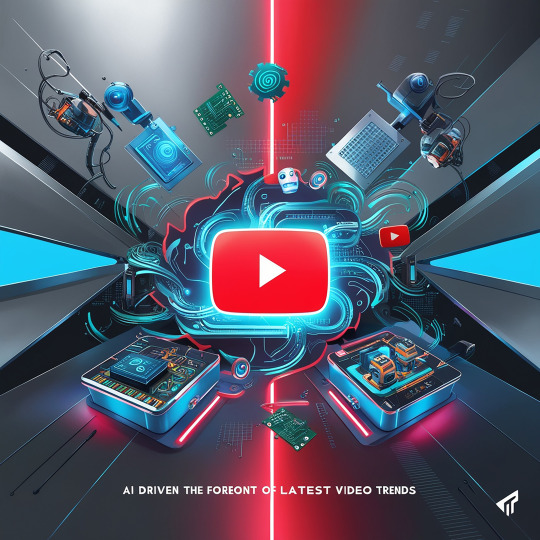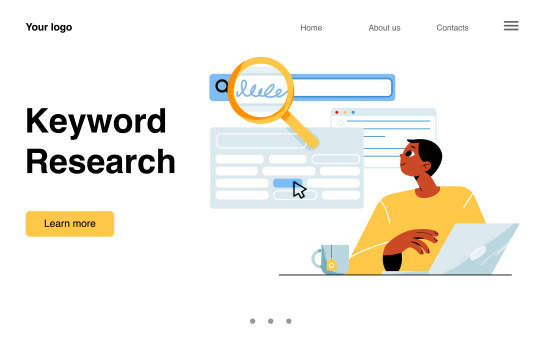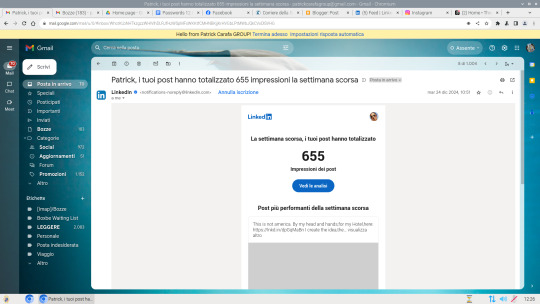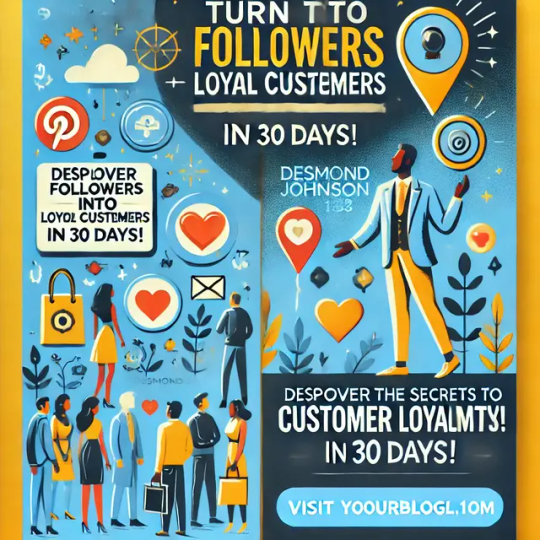#content marketing and strategy
Explore tagged Tumblr posts
Text
PR Agency
SPAG is a leading PR agency delivering innovative communication strategies tailored to healthcare, life sciences, and corporate sectors. We specialize in building strong brand narratives, media relations, and stakeholder engagement. Our expertise ensures impactful campaigns that drive visibility, credibility, and meaningful connections for businesses across diverse industries.
#social media agency#marketing and public relations#integrated marketing and communications#SEO Services#seo marketing#social media marketing agency#brand marketing#crisis management#digital marketing services#research and data analysis services#pr agency#strategic positioning marketing#content curation services#content creation and social media#social digital marketing#website and digital marketing#quantitative data analysis#content marketing strategy#content marketing and strategy
0 notes
Text
Customized Content Marketing Plan | Get a Quote |WSE Infratech
Content is not just information; it's the voice of your brand, a narrative that resonates with your audience. Strategically crafted, it becomes a powerful tool for building credibility and engagement.
At WSE Infratech, we recognize that each brand holds a unique story waiting to unfold. Our content marketing services transcend the ordinary – we don't just create content; we curate an immersive experience.
Embark on a journey of creativity and strategic messaging with our tailored content solutions. Let your brand's narrative captivate, engage and leave a lasting impression.
#content marketing strategy#social media content strategy#content marketing strategy plan#content marketing and strategy#Content Marketing company
1 note
·
View note
Quote
We are faced with the incredible challenge of creating high quality content for a crowd of skimmers. The faster you understand this, the more effective your content tactics will become.
Laura Busche, Powering Content: Building a Nonstop Content Marketing Machine
#quotes#Laura Busche#Powering Content: Building a Nonstop Content Marketing Machine#thepersonalwords#literature#life quotes#prose#lit#spilled ink#blogging#branding#branding-quotes#business#business-quotes#content-marketing#content-marketing-strategy#entrepreneurship#marketing#marketing-quotes
50 notes
·
View notes
Text



this is absolutely killing me *bombastic side eye, criminal offensive side eye playing in the background*
#zhongli probably thinks neuvillette will turn into that one kermit punch meme as soon as he lands eyes on him 😂#this entire quest was peak humour#i really love genshin sometimes#also neuvi falling for a marketing strategy and ending up buying too much tea on the first time he goes out to another country is so him#there was so much going on during this quest#neuvi explaining an inside joke to wrio... that was so cynoesque ahjsgsjsgshs he's trying his best at fitting in 😭 cute#i love that old man so much#and the ladle?!!!!! picasso 🤌#furina having a death note moment of reverse physchology trying to understand if zhongli knew who she was was only missing the#l's theme playing in the background#plus clorinde and navia being questionably lesbian in the mountain that was also nice 👍#but i swear neuvi is so funny#what do you mean that man carried everyone's belongings and went to another country in half a day and managed to scare zhongli without#even trying agsjsh i'm gonna create a monsieur neuvillette fan club#he's the best ever#i need him to meet zhongli for scientific purposes. the world will stop when that day comes 😂#i need to know what would happen#okay realistically neuvi would probably start wheezing the moment he saw the false vision#but still poking genshin so they give us the content we need they can't just tease us like this
43 notes
·
View notes
Text
Unlock the secret to creating viral faceless content. Your followers will love this! Here’s how you can captivate your audience without ever showing your face:
High-Quality Visuals: Use stunning visuals that grab attention. Whether it's product shots, inspiring quotes, or engaging infographics, quality matters.
Compelling Narration: Your voice can tell a powerful story. Share your journey, tips, and insights in a way that resonates with your audience.
Relatable Content: Address common challenges and experiences in the black-owned business community. Content that strikes a chord will naturally get shared.
Engaging Captions: Write captions that provoke thought and encourage interaction. Ask questions, share anecdotes, and invite your followers to join the conversation.
These strategies can help black content creators and melanin entrepreneurs make a significant impact without ever stepping in front of the camera. Ready to see your content go viral?
#melanin#melanin entrepreneurs#melanin magic#melanated#melanin poppin#black business#black excellence#affiliatemarketing#black tumblr#digital marketing#digital products#black entrepreneurship#black content creator#passive income#content marketing strategy
11 notes
·
View notes
Text
Dr. Jerry Doby
Dr. Jerry Doby, a respected editor and media maven, has been serving as the Editor-in-Chief at The Hype Magazine for over a decade. With his extensive experience in SEO-optimization research, Dr. Doby has made significant contributions to the entertainment, music, and lifestyle industries. His accomplishments and accolades have solidified his role as an influential figure in the media world,…
#awards#best practices#business#communication#content creation#Dr. Jerry Doby#editor#Editor-in-Chief#Education#entertainment#events#family#gaming#health#honors#impact#interviews#journalism#legacy#lifestyle#marketing#media consultant#media maven#military background#music#perspective#SEO strategies#SEO-optimization#SEO-optimization research#sports
4 notes
·
View notes
Text

🚀 AI-Driven Tools Are at the Forefront of YouTube’s Latest Video Trends! 🎥🤖 From personalized recommendations to dynamic editing and analytics, AI tools are shaping the hottest video trends on YouTube. Creators are using AI to make engaging, innovative content that stands out and resonates with viewers. Dive into the future of video creation with AI leading the way! 💡✨ Click this link : https://tinyurl.com/fbhea698
#ai tools#youtube trends#video innovation#content creation#ai for creators#next level content#digital creativity#tech for youtube#ai impact#video editing#future of content#trending now#boost your channel#ai and video#tech tools#ai#creator community#digital#youtube tips#digital marketing#youtube growth#channel growth#content strategy
3 notes
·
View notes
Text
How to Build a Strong Digital Brand: Key Strategies for Success

Building a strong digital brand is essential in today’s competitive online landscape. Whether you're a startup or an established business, a solid digital branding strategy can differentiate you from the competition and help you connect with your target audience. In this post, we'll cover the core elements of digital branding and share actionable strategies to improve your brand’s visibility and engagement online.
1. Define Your Brand Identity
Your brand identity is the foundation of all your digital marketing efforts. It includes your mission, values, visual style, and voice. To build a strong digital brand, start by clearly defining what your brand stands for and who your ideal customers are. Your brand's identity should resonate with your audience and communicate a consistent message across all platforms.
2. Leverage Social Media Platforms
Social media is one of the most powerful tools for digital branding. Platforms like Instagram, LinkedIn, and Twitter offer a space to showcase your brand’s personality, engage with followers, and build a community around your brand. Create a social media content calendar to ensure you're posting regularly and sharing a mix of content, including educational posts, behind-the-scenes glimpses, and user-generated content.
3. Consistent Messaging Across Channels
Brand consistency is key to building trust with your audience. Ensure your brand message, visual style, and tone of voice remain consistent across all your digital channels. This includes your website, social media, email marketing campaigns, and even customer service interactions. When your audience sees the same message across different touchpoints, it reinforces your brand’s credibility.
4. Optimize Your Website for SEO
A well-optimized website is essential for attracting traffic and converting visitors into customers. Invest time in keyword research to ensure your content ranks for the right terms. Focus on both on-page SEO (like title tags, meta descriptions, and internal linking) and off-page SEO (such as backlinks and social proof).
5. Use Content Marketing to Tell Your Brand Story
Content marketing is an effective way to build brand authority and connect with your audience on a deeper level. Share blog posts, case studies, videos, and infographics that tell your brand’s story and showcase your expertise. By providing valuable content, you position your brand as a trusted resource.
6. Monitor Analytics and Adjust
Digital marketing is an ongoing process, and monitoring your results is essential for improving your branding strategy. Use analytics tools to track key metrics like website traffic, social media engagement, and conversion rates. Regularly assess what's working and what’s not, and adjust your strategy accordingly to ensure continuous growth.
Conclusion
Building a digital brand requires strategic thinking, consistency, and an ongoing commitment to providing value to your audience. By defining your brand identity, leveraging social media, maintaining consistent messaging, optimizing for SEO, and using content marketing, you can create a powerful digital presence that resonates with your audience and stands out in a crowded marketplace.
Want more tips on digital branding and marketing strategies? Follow us for more insights on how to build and grow your online presence!
#Digital branding strategies#Brand identity definition#Social media marketing#SEO for digital brands#Content marketing for brands#Brand consistency online#Digital marketing success
4 notes
·
View notes
Text
5 Key Elements of Effective Content Marketing Strategies
Effective marketing is an art where marketers analyze and try different ways to capture the attention and action of their target audience. For newer marketers or those launching a new product, sometimes there is not much information to work with, and it requires a lot of trial and error to see what will work. However, we can always find ourselves ahead of the game when we know in which direction…

View On WordPress
#blog#blog writing#content creation#content marketing#content marketing strategy#content writing#digital marketing#facebook#instagram#marketing#marketing strategy#seo#social media#social media marketing#target market#youtube
56 notes
·
View notes
Text
if, when I changed my profile picture, I also changed my url, would y’all freak out
#reasons I would: new kinds of content making its home on tha blog#2:#this is a url I chose with YouKnowWho during a phase of life I feel is a world away now that she is married :’)#3:#I am entering a new phase of life and I feel like being too attached to my ‘Tumblr brand’ and my ‘brand’ in general is the old way#I’m over it#I’m over living my life as one big marketing strategy#to name but a few#mobile#x#Tumblr#(this is not to suggest I have any negative feelings towards my url)
15 notes
·
View notes
Text
The Relevance of Conducting Keyword Research in Digital Marketing
In a world dominated by technology where businesses require visibility to succeed. The only way to cut through the noise of millions of websites is to know what your audience wants, and then create content that addresses that need. This is where conducting keyword research comes in- it is a critical building block that goes into constructing a good digital marketing strategy.
Understanding Keyword Research :
In most cases, users do not type in full sentences into search engines- instead, they search for keywords and phrases. Keywords are what connect the questions asked by the user, to a piece of content prepared to answer the query. Identifying keywords allows businesses to create content that users are looking for, increasing their chances of ranking higher in search results, and making more sales.

Why Is Keyword Research Important?
A Better Return On Investment (ROI): Returning from targeted ads is higher than any other form or investing in advertising channels, for example: Pay per click adverts.
Increased Visibility: It is extremely hard to get noticed as a new website, and investing in keywords will allow you to boost your website’s organic traffic.
Understanding Audience Intent: Good keyword research helps you understand what your target audience is looking for and how they phrase their queries. You can, therefore, create content that directly answers their needs, thus building trust and fostering engagement.
3. Competitive Advantage: Analyze the keywords your competitors are targeting, find gaps in their strategy, and identify opportunities to differentiate your content. This way, you are ahead in a crowded marketplace.
4. Cost-Efficient Advertising: Keyword research for paid campaigns is very important. For example, Google Ads has to be able to select appropriate cost-effective, high-performing keywords. So, targeting the right keywords really minimizes waste and maximizes ROI.
5. Content Strategy Development: It acts as a roadmap for content strategy. By creating blog posts, videos, and other such assets that actually resonate with the audience while satisfying the search engines, it provides a well-researched list of keywords.
Effective Keyword Research Tips
Use Tools: Utilize Google Keyword Planner, SEMrush, or Ahrefs to uncover the volume, competition, and trend of your keyword.
Long Tail Keywords: Be more specific as they tend to have less competition and more chances of conversion
Search Intent: Identify if it is an information intent, a navigational intent, or transactional intent to use it appropriately for your content.
Keep fresh: trends in searches change, and your keyword approach should be reviewed regularly.
Keyword research is far from a technical task; it's a strategic initiative that bestows business the power to connect with audiences more effectively. The time and resources you invest in understanding the language of your customers set you up for long-term digital marketing success. Whether you are optimizing for organic search or planning a PPC campaign, keyword research is the compass guiding your efforts toward measurable results.
#Digital Marketing#SEO Strategy#Search Engine Optimization#Audience Intent#Content Marketing#PPC Campaigns#Long-Tail Keywords#Marketing Tips#Competitive Analysis#Online Advertising#Marketing Strategy#Website Traffic#Organic Search#Digital Marketing Trends#Keyword research#keyword research tools
2 notes
·
View notes
Text

BADABOOMKEDIN.
Here: www.linkedin.com/in/patrick-carafa
With my crew,after several consultations,we develop everything else concerning marketing and communication also for social media channels.
Into my ADV Agency we love consultings,strategies,campaigns,image,analysis,communication.
Into my Adv Agency we do digital,adv,design,events,pr,marketing.
Something about my hands and my head,here: https://it.pinterest.com/patrickrafting/advs-story-of-patrick
Something about my ADV Agency,here: https://dribbble.com/patrickcarafa
All about the CEO,here: www.linktr.ee/patrick.carafa
My AUTOBIODATAPHY,here: www.flickr.com/people/communitycation
ALL my Social channels,here: www.linktr.ee/patrick.carafa
That's why,I inspire,I'm copied,I'm imited,I'm envied,like here: www.pinterest.it/patrickrafting/we-inspire
Bookings,reservations,orders and quotations at: [email protected] www.linktr.ee/patrick.carafa
EXCLUSIVE CONTENTS,OFFERS,DEALS AND EPICS,NEWS,CURRENT PHOTOS and VIDEOS,UNSEEN,UNHEARD,UNLOCKED,ULTIMATE AFFAIRS,BOOKINGS,RESERVATIONS,ORDERS and QUOTATIONSONLY ON OUR PRIVATE CLOUD by the CARD,here:
[email protected] www.linktr.ee/patrick.carafa
Everything else I do: www.pinterest.it/patrickrafting/just-patrick
Thousands of real projects,in the most varied sectors,created so far,here: www.pinterest.it/patrickrafting/advs-story-of-patrick
For our FRANCHISING,contact us at: [email protected] www.linktr.ee/patrick.carafa
#advagency#brand#logo#artdirector#linkedin#copywriter#creative#creativity#agency#strategies#campaigns#image#analysis#communication#digital#adv#design#social#emiliaromagna#marketing#advertising#deluxe#socialmedia#romagna#business#socialcontent#contents#media#corporateimage#rimini
2 notes
·
View notes
Text
Cybersecurity vs. SaaS Marketing: Why Selling Security Is a Whole Different Game
Selling cybersecurity isn't the same as selling SaaS. This post explores the unique challenges and strategies involved in marketing security solutions. Learn why trust, risk aversion, and compliance play a crucial role in cybersecurity sales, and how to tailor your approach for success.

In the world of B2B tech, marketing cybersecurity solutions is like playing chess while everyone else is playing checkers. It's more complex, higher stakes, and requires a completely different strategy. This article dives into why marketing cybersecurity products is so different from selling your average SaaS solution, and why it matters for your business.
Think about it: When you're marketing a typical SaaS product, you're selling efficiency, productivity, or cost savings. But with cybersecurity? You're selling peace of mind in a digital world full of threats. It's not just about making life easier—it's about keeping businesses safe from invisible dangers.
Here's what we'll uncover:
Why cybersecurity products are trickier to explain (and sell)
How building trust is your secret weapon in security marketing
The constant race against new threats (and how it affects your marketing)
Why your customers might not know they need you (until it's too late)
Navigating the maze of regulations and compliance
Whether you're a marketer looking to level up your skills, a business owner trying to protect your digital assets, or just curious about how the world of cybersecurity ticks, this article will shed light on why marketing in this field is a unique challenge—and an exciting opportunity.
The Need for Specialized Marketing Skills in Cybersecurity
Before we dive into the specific differences, it's crucial to understand why cybersecurity marketing requires a specialized skill set:
Technical Proficiency: Cybersecurity marketers need a deep understanding of complex technical concepts to effectively communicate product value.
Risk Communication: Balancing the need to convey urgency without resorting to fear-mongering requires a nuanced approach.
Regulatory Knowledge: Familiarity with various compliance standards and regulations is essential for credible marketing in this space.
Rapid Adaptation: The ever-evolving threat landscape demands marketers who can quickly pivot strategies and messaging.
Trust Building: In a field where skepticism is high, marketers must excel at building and maintaining trust through every interaction.
Now, let's explore the five critical areas that make cybersecurity marketing a different beast from its SaaS counterparts, and learn how savvy marketers are rising to meet these challenges head-on.
1. Complexity of the Product
Cybersecurity Marketing
Cybersecurity solutions often involve intricate technologies and specialized knowledge. The products are designed to protect against sophisticated threats and vulnerabilities, which can be difficult for non-experts to fully grasp. As a result, cybersecurity marketers face the challenge of:
Simplifying complex concepts without losing their technical essence
Educating potential customers on the importance and functionality of various security measures
Balancing technical accuracy with accessibility to appeal to both IT professionals and business decision-makers
Specialized Skill: The ability to translate highly technical concepts into clear, compelling narratives that resonate with both technical and non-technical audiences.
Traditional SaaS Marketing
While SaaS products can also be complex, they often focus on solving more straightforward business problems. Marketers of traditional SaaS products typically:
Highlight user-friendly interfaces and intuitive functionality
Focus on immediate business benefits and ROI
Use less technical jargon in their marketing materials
2. Emphasis on Trust and Credibility
Cybersecurity Marketing
Trust is paramount in cybersecurity. Organizations are essentially entrusting their digital assets and sensitive information to the cybersecurity solution provider. To build this trust, cybersecurity marketers must:
Demonstrate deep expertise in the field
Showcase a proven track record of protecting against threats
Utilize case studies and customer testimonials extensively
Produce thought leadership content to establish authority
Highlight certifications, compliance, and industry recognition
Specialized Skill: The ability to build and maintain trust through every marketing touchpoint, from content creation to customer interactions.
Traditional SaaS Marketing
While trust is important for all SaaS products, the stakes are generally lower. Traditional SaaS marketers focus on:
User reviews and ratings
Ease of use and customer support
Integration capabilities with other tools
Cost-effectiveness and scalability
3. Rapidly Evolving Threat Landscape
Cybersecurity Marketing
The cybersecurity field is in a constant state of flux, with new threats emerging regularly. This dynamic environment requires cybersecurity marketers to:
Stay informed about the latest threats and trends
Quickly adapt marketing messages to address emerging challenges
Demonstrate how their solutions evolve to counter new risks
Educate the market about new types of threats and vulnerabilities
Position their products as forward-thinking and proactive
Specialized Skill: The ability to rapidly assimilate new information about emerging threats and translate it into compelling marketing messages and strategies.
Traditional SaaS Marketing
While innovation is important in SaaS, the pace of change is typically slower. SaaS marketers often focus on:
Long-term value proposition and stability
Gradual feature improvements and updates
Industry trends rather than immediate threats
4. Target Audience's Risk Awareness
Cybersecurity Marketing
Many organizations take a reactive approach to cybersecurity, only prioritizing it after experiencing a threat. This creates unique challenges and opportunities for marketers:
Educating potential clients about the importance of proactive measures
Using fear-based marketing carefully to highlight risks without being alarmist
Demonstrating the cost of inaction through real-world examples
Targeting both technical (CISOs, IT managers) and non-technical (CEOs, CFOs) decision-makers
Specialized Skill: The ability to effectively communicate risk and urgency without resorting to fear-mongering, while also tailoring messages to different stakeholders within an organization.
SaaS Marketing
Traditional SaaS products often address known pain points or inefficiencies. Marketers typically focus on:
Highlighting productivity gains and cost savings
Showcasing how the product solves existing problems
Appealing to a more defined set of decision-makers within an organization
5. Regulatory and Compliance Considerations
Cybersecurity Marketing
Cybersecurity solutions must often adhere to specific regulatory standards, adding another layer of complexity to marketing efforts:
Communicating compliance capabilities effectively
Addressing concerns related to data protection laws (e.g., GDPR, CCPA)
Highlighting adherence to industry-specific regulations (e.g., HIPAA for healthcare)
Demonstrating how the solution helps clients meet their own compliance requirements
Specialized Skill: A deep understanding of various regulatory frameworks and the ability to articulate how cybersecurity solutions address compliance requirements.
General SaaS Marketing
While some SaaS products may need to address compliance, it's typically not as central to the marketing message:
Focus on general data security and privacy features
Highlight any relevant certifications (e.g., SOC 2)
Address compliance as a feature rather than a core selling point
The Learning Curve for B2B SaaS Marketers
For B2B SaaS marketers transitioning into cybersecurity, the learning curve can be steep and time-consuming. Here's why:
Technical Knowledge Acquisition: Understanding the intricacies of cybersecurity technology, threat landscapes, and defense mechanisms requires significant study and often hands-on experience.
Regulatory Comprehension: Grasping the nuances of various compliance standards and their implications for different industries takes time and continuous learning.
Risk Communication Skills: Developing the ability to effectively communicate about risks without causing panic or disengagement is a delicate skill that takes practice to master.
Trust-Building Expertise: Learning how to establish and maintain trust in a highly skeptical market requires time to build credibility and refine communication strategies.
Rapid Adaptation Abilities: Cultivating the agility to quickly understand and respond to new threats and market changes is an ongoing process that improves with experience.
Cross-Functional Collaboration: Developing the ability to work effectively with technical teams, compliance officers, and C-suite executives requires time to build relationships and understand diverse perspectives.
Industry-Specific Knowledge: Each industry (e.g., healthcare, finance, government) has unique cybersecurity needs and regulations, requiring marketers to develop sector-specific expertise.
Typically, it can take 2-3 years for a B2B SaaS marketer to become proficient in cybersecurity marketing, and 3-5 years to be considered an expert in the field. This timeline can vary based on the individual's background, the complexity of the cybersecurity solutions they're marketing, and the resources available for professional development.
Conclusion
Marketing cybersecurity solutions requires a unique approach that goes beyond traditional SaaS marketing strategies. The complexity of the products, the critical need for trust and credibility, the rapidly changing threat landscape, the varying levels of risk awareness among potential clients, and the intricate regulatory environment all contribute to making cybersecurity marketing a distinct challenge.
Successful cybersecurity marketers must balance technical expertise with clear communication, educate their audience while building trust, and stay agile in response to new threats and regulations. By understanding these key differences and investing in specialized skills, marketers can create more effective strategies that resonate with the specific needs and concerns of the cybersecurity market.
For B2B SaaS marketers looking to transition into this field, patience and dedication are key. The journey to becoming a proficient cybersecurity marketer is demanding but rewarding, offering the opportunity to play a crucial role in protecting organizations and individuals in our increasingly digital world.
Visit for more info: https://gracker.ai/
#seo services#seo strategy#content strategy#search engine optimisation#seo marketing#blog strategy#cybersecurity#content creation#ai generated#content marketing
3 notes
·
View notes
Text
https://onlinemarketingcash4u.blogspot.com/2025/01/how-to-turn-followers-into-loyal.html

#marketing strategy#@desmondjohnson183#digital marketing#contentcreation#Turning followers into customers#Social media engagement#Customer loyalty strategies#Influencer marketing tips#Build trust online#Personalized marketing tactics#Shoppable content ideas#30-day marketing plan#Value-driven content#Strategic digital marketing
2 notes
·
View notes